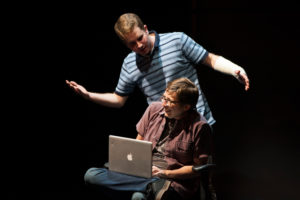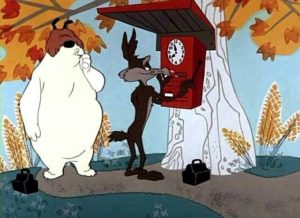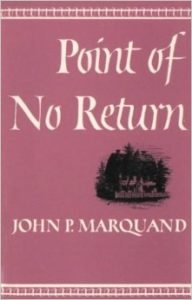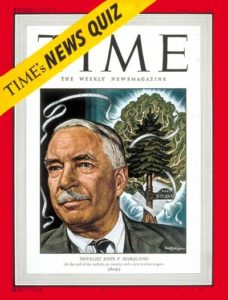A friend of mine who is about to do her first interview with a well-known actor asked me for advice. This is what I told her. I thought it might be of interest to you as well:
 • Be prepared to the hilt going in—and have a long list of questions at your fingertips. Some actors are more at ease in an interview setting than others, and some just can’t talk at all.
• Be prepared to the hilt going in—and have a long list of questions at your fingertips. Some actors are more at ease in an interview setting than others, and some just can’t talk at all.
Conversely,
• When the interviewee starts talking, let her talk. Unprompted talk is often much more revealing. (Corollary: don’t turn the recorder off until you leave the room.)
• If I get a talkative subject, I scratch questions off the list once they’ve been answered spontaneously. The idea is to let the conversation follow its own natural path—while silently keeping track of the things you still need to find out.
• Don’t waste a famous interviewee’s time asking questions whose answers you can obtain yourself.
• Start with a question that indicates that you did your homework.
• Don’t be gushing, but don’t withhold admiration, either. Even famous people like to be praised.
Finally,
• Remember that no matter how well the interview is going, the subject is not your friend. Never forget that you’re reviewing somebody whose job is to give a performance.

 BROADWAY:
BROADWAY:

 It wasn’t always this way. Before I became a full-time freelancer and, somewhat later, an increasingly peripatetic drama critic, I worked five days a week and took Saturdays and Sundays off, just like most of the rest of my fellow Americans. The downside of this arrangement was, of course, that I spent between eight and ten hours each day sitting on my backside in an office. (At one point in my life, I actually punched a time clock.) The upside was that I walked away from the job every Friday at six o’clock, more or less, shedding it like a raincoat that I hung up in the hall closet as soon as I got home.
It wasn’t always this way. Before I became a full-time freelancer and, somewhat later, an increasingly peripatetic drama critic, I worked five days a week and took Saturdays and Sundays off, just like most of the rest of my fellow Americans. The downside of this arrangement was, of course, that I spent between eight and ten hours each day sitting on my backside in an office. (At one point in my life, I actually punched a time clock.) The upside was that I walked away from the job every Friday at six o’clock, more or less, shedding it like a raincoat that I hung up in the hall closet as soon as I got home. It happens that I don’t have to do anything in particular today. I have no deadlines to hit and no show to see. I slept in this morning, and I plan (if you want to call it that) to spend the rest of the day re-reading
It happens that I don’t have to do anything in particular today. I have no deadlines to hit and no show to see. I slept in this morning, and I plan (if you want to call it that) to spend the rest of the day re-reading  This essay about John P. Marquand’s
This essay about John P. Marquand’s  With the practiced skill of a Hollywood director, Marquand turns the clock back a quarter-century. We learn that Charles is the oldest son of a New England family headed by a flighty, unsound man who frittered away a small fortune and thereafter was viewed with suspicion by his ultra-proper friends and neighbors. When Charles falls in love with the daughter of one of Clyde’s oldest families, he discovers that his father’s irresponsibility has cast a cloud over his own reputation and that he is not deemed an acceptable suitor. Cruelly hurt by his inability to vault the high walls of caste, he puts Clyde behind him, goes to New York, and seeks a less provincial life. For a time he thinks he has found it, but then he looks into the mirror and realizes that he has spent the whole of his life measuring himself by the yardstick of a town that time has left behind. Not even the promotion he has sought for so long can erase the chilling suspicion that his worldly success is a handful of dust:
With the practiced skill of a Hollywood director, Marquand turns the clock back a quarter-century. We learn that Charles is the oldest son of a New England family headed by a flighty, unsound man who frittered away a small fortune and thereafter was viewed with suspicion by his ultra-proper friends and neighbors. When Charles falls in love with the daughter of one of Clyde’s oldest families, he discovers that his father’s irresponsibility has cast a cloud over his own reputation and that he is not deemed an acceptable suitor. Cruelly hurt by his inability to vault the high walls of caste, he puts Clyde behind him, goes to New York, and seeks a less provincial life. For a time he thinks he has found it, but then he looks into the mirror and realizes that he has spent the whole of his life measuring himself by the yardstick of a town that time has left behind. Not even the promotion he has sought for so long can erase the chilling suspicion that his worldly success is a handful of dust: